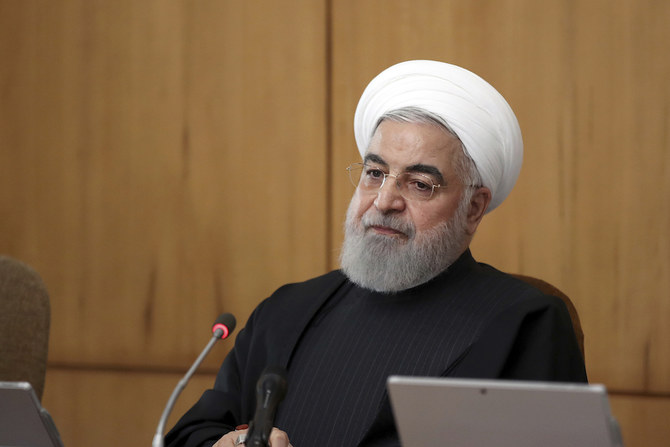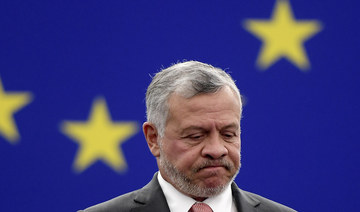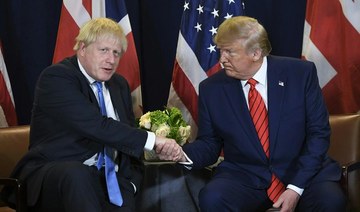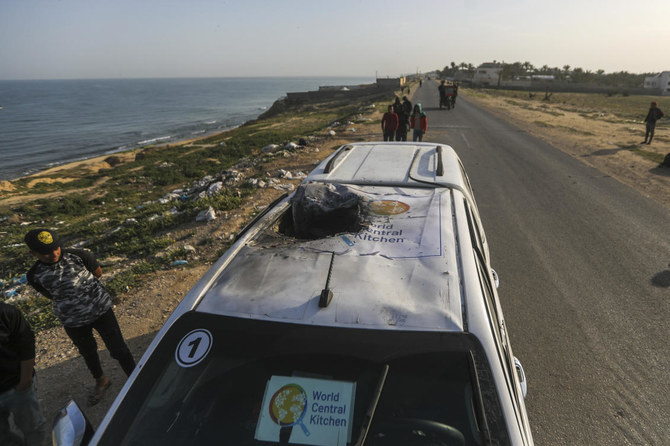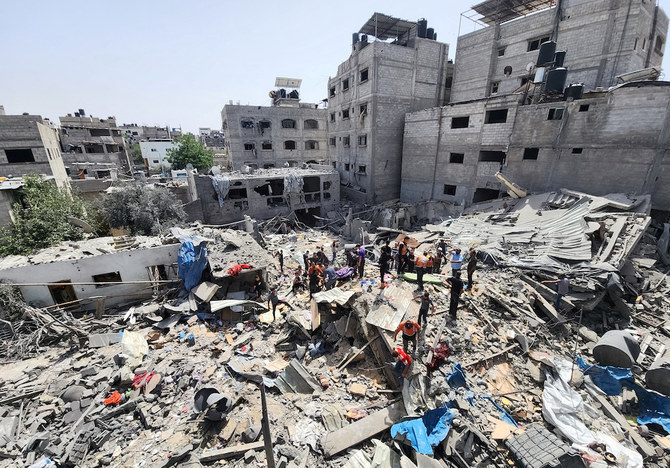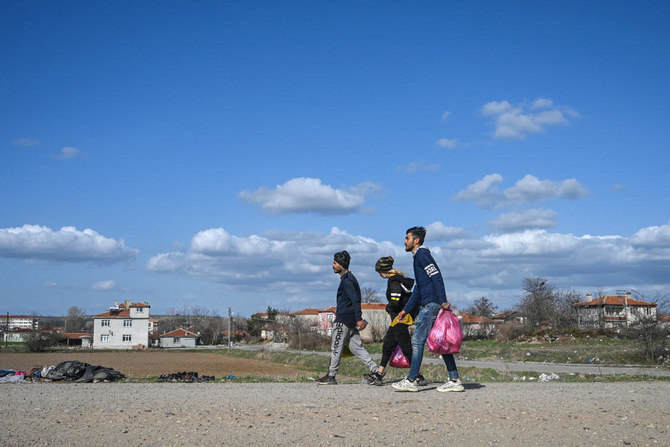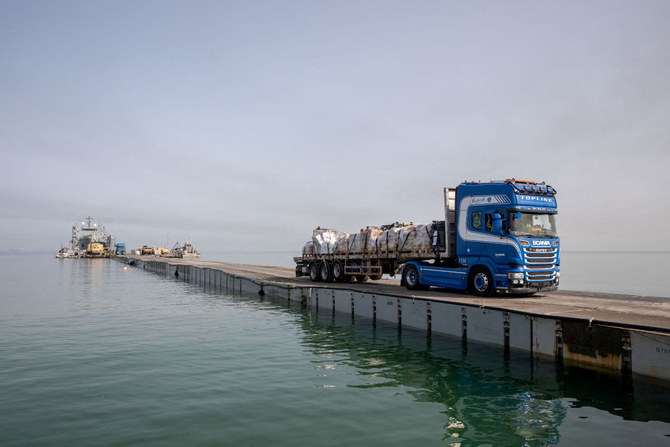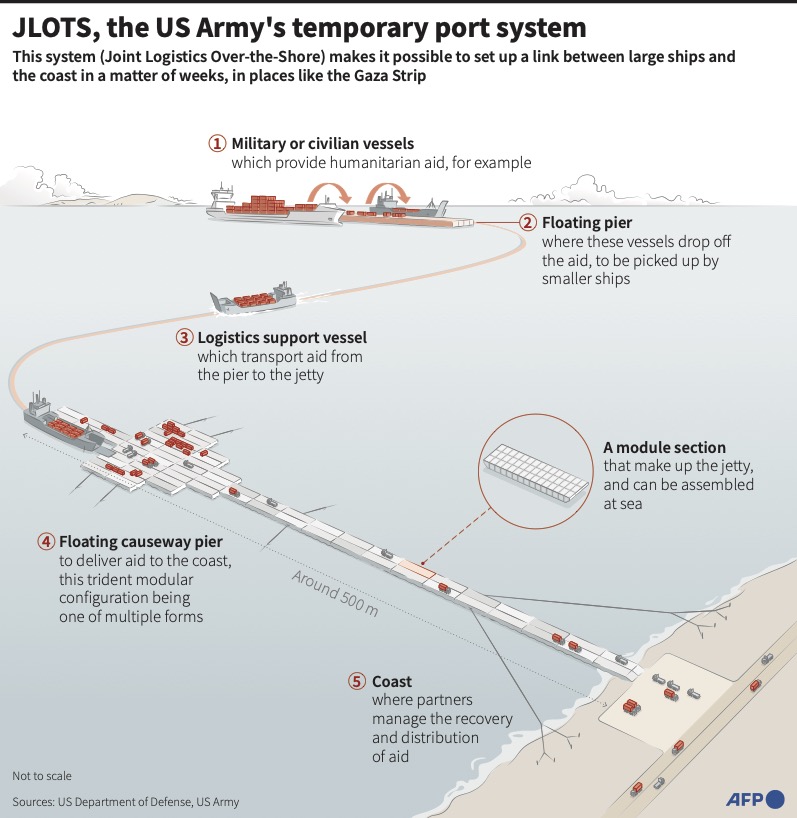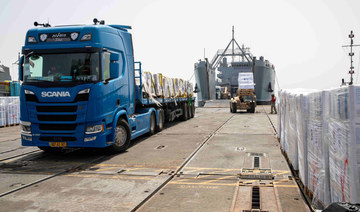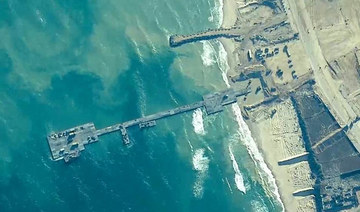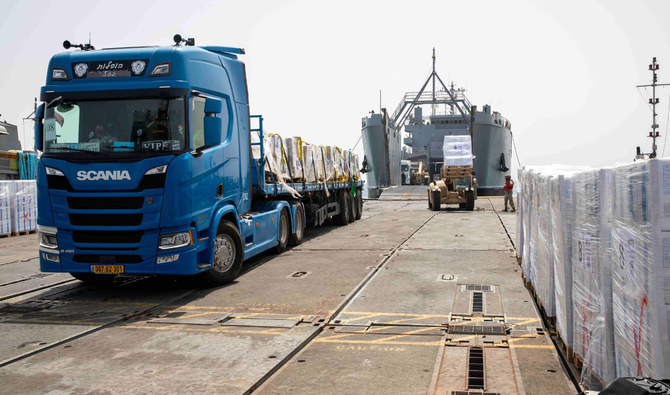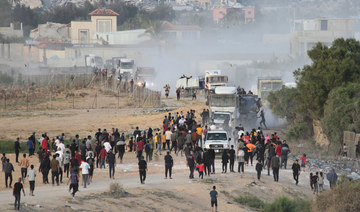LONDON: Iran's president issued a warning on Wednesday that European forces in the Middle East could be at risk if their nations joined the US pressure campaign against his country and challenged Tehran over breaking the limits of a 2015 nuclear deal.
"Today, the American soldier is in danger, tomorrow the European soldier could be in danger,” president Hassan Rouhani said at a Cabinet meeting without elaborating.
Meanwhile, Iranian Foreign Minister Mohammad Javad Zarif acknowledged on Wednesday during a summit in New Delhi that Iranians “were lied to” for days following the accidental shoot down of a Ukrainian jetliner that killed 176 people.
Rouhani's remarks represent the first direct threat he has made to Europe, while Zarif's admission represents the first time an Iranian official referred to earlier claims from Tehran that a technical malfunction downed the Ukraine International Airlines flight as a lie.
The shoot down — and subsequent days of denials that a missile had downed it — sparked days of angry protests in the country.
The UK, France and Germany have spent several months trying to preserve the 2015 Joint Comprehensive Plan of Action after US President Donald Trump unilaterally abandoned it in 2018.
But on Tuesday, amid rising tensions between Tehran and Washington, the European Union initiated a dispute resolution mechanism to try to bring Iran back into compliance after it began openly breaching some restrictions last summer.
Iran says it should not be bound to the agreement following a Jan. 3 US airstrike in Iraq killed Iran's top commander — General Qassem Soleimani — especially considering the US has since reimposed crippling sanctions after Iran fired missile at US troops based in Iraq.
After Soleimani's killing, Iran said it would no longer abide by any of the nuclear deal's limits, which had been designed to stop Iran obtaining enough material to be able to build an atomic bomb if it chose.
However, the United Nations' nuclear watchdog would still be allowed access to Iranian nuclear sites, Rouhani said and on Wednesday he reiterated a long-time Iranian pledge that the regime does not seek to build a bomb.
The decision by European nations to trigger the dispute mechanism now starts a process that could result in starting the clock on a process that could result in the “snapback” of UN and EU sanctions on Iran.
Moreover, the Trump administration has threatened to impose a 25% tariff on European automobile imports if Britain, France and Germany do not formally accuse Iran of breaking the 2015 nuclear deal, the Washington Post reported on Wednesday, citing unnamed European officials.
The three European countries triggered a dispute mechanism under the agreement on Tuesday, amounting to a formal accusation against Tehran of violating its terms and could lead to the reinstatement of United Nations sanctions lifted under the accord.
Iran has criticized that move, calling it a “strategic mistake.”
Though Trump has previously made threats to place such a duty on European automobile imports, the intent behind them was to receive better terms for Washington within the US-European trade relationship, not to shift European foreign policy, according to the Post.
It was not clear if the threat was necessary since the Europeans had signaled an intention to trigger the dispute mechanism for weeks, the newspaper reported.
The White House and State Department did not immediately respond to requests for comment.
Trump withdrew the United States from the 2015 nuclear deal, or JCPOA, in 2018. Washington has said its abandonment of the pact was part of a strategy intended to force Tehran to agree to a larger deal.
Iran, which denies its nuclear program is aimed at building a bomb, has gradually rolled back its commitments under the agreement since the US withdrawal.
Russia, another signatory to the pact, has said it saw no grounds to trigger the dispute mechanism.
Also on Wednesday, France’s foreign minister said on Wednesday the only way to resolve the current crisis between the United States and Iran was for Tehran to accept a broad negotiation and Washington to progressively reduce sanctions.
Speaking to lawmakers, Jean-Yves Le Drian said efforts by France and its European partners since September 2017 to open a new negotiation that would include Iran’s nuclear activities after 2025, its ballistic missile program and its regional activities in return for a reduction of US sanctions was the only way forward.
“This platform is still there and is possible,” he said. “Today, it is the only solution to get out of the crisis.”
UK foreign secretary Dominic Raab told parliament on Tuesday that the European nations felt compelled to act, despite objections from Russia and China, because every violation of the deal reduces the so-called “breakout time” Iran needs to produce a nuclear bomb. Under the deal's limits, experts believed Iran needed a year to be able to have enough material for a weapon.
European countries have troops in Afghanistan, Iraq and elsewhere in the Middle East, where they mainly operate alongside much larger US deployments.
European troops based in Iraq
Britain, France and Germany are all part of the US-led coalition that is fighting Daesh. The UK has about 400 troops based in Iraq while Germany has nearly 450 troops deployed to counter Daesh and to train Iraqi forces.
Germany “temporarily” withdrew 35 of its troops from Iraq after Soleimani. Most were flown to Jordan, where Germany also has troops involved in reconnaissance and refueling flights for the anti-Daesh coalition. France has about 1,000 troops in the region to help combat Daesh in Iraq and Syria.
The EU as a bloc has several dozen personnel in Baghdad working on security sector reform and advising the Interior Ministry. European Commission spokesman Peter Stano said officials are aware of the threats, but that “we, as the EU, are not leaving Iraq.”
The Gulf
The UK operates a naval base in Bahrain that can house up to 500 British military personnel and is focused on maritime security. It also has a joint training base in Oman. France has a naval base known as Camp Peace in Abu Dhabi's Port Zayed, which houses some 700 French troops. Britain and France also station troops at US bases in the region.
Lebanon
Several European countries contribute forces to the UN peacekeeping mission in southern Lebanon, which patrols the tense frontier between Israel and the Iranian-backed Hezbollah militant group. France contributes about 700 troops. Germany provides more than 100 forces to the peacekeepers' maritime mission.
Afghanistan
The NATO mission in Afghanistan consists of about 17,000 troops from 39 allied and partner countries. The alliance formally concluded its combat mission at the end of 2014 and provides advice and training to Afghan forces. Britain has nearly 1,000 troops in Afghanistan and Germany has about 1,100.
(With AP and Reuters)



